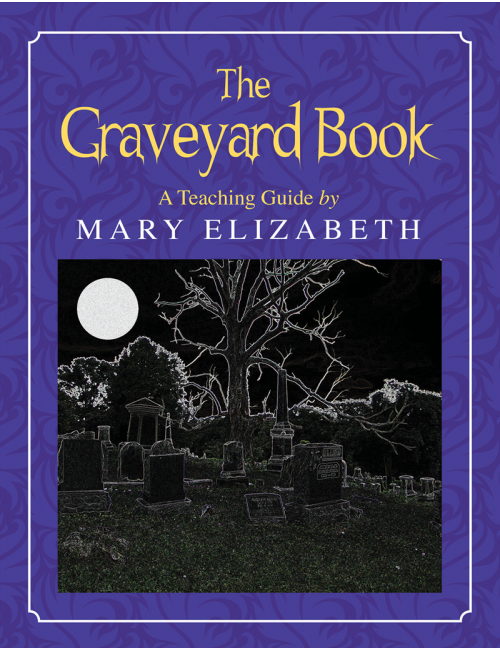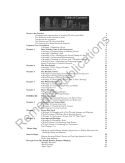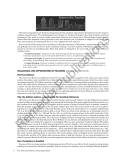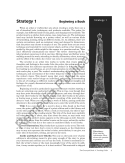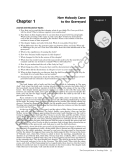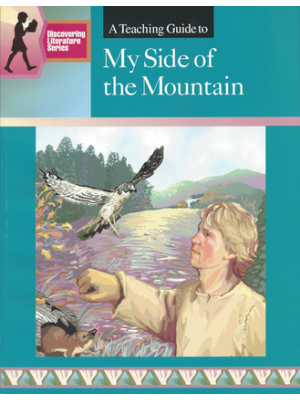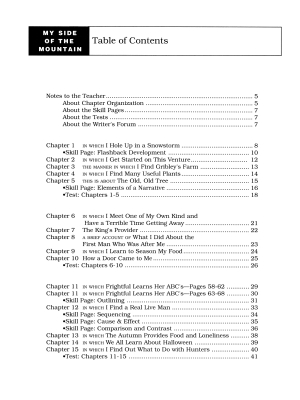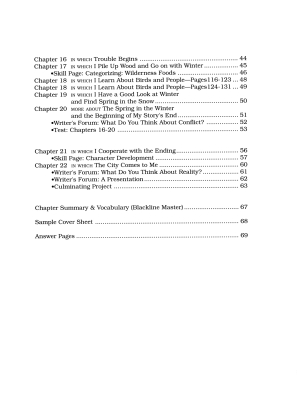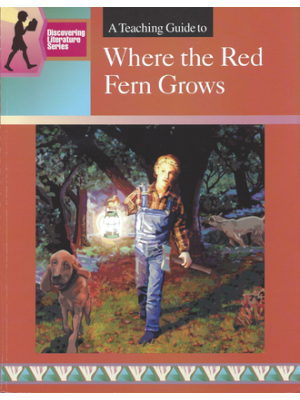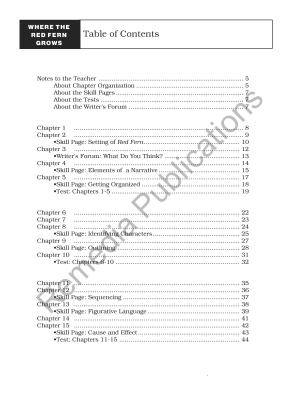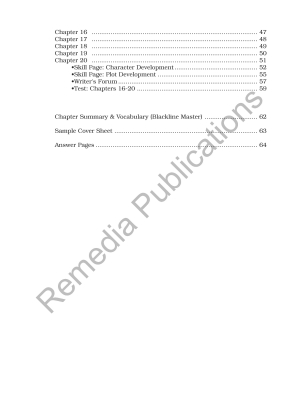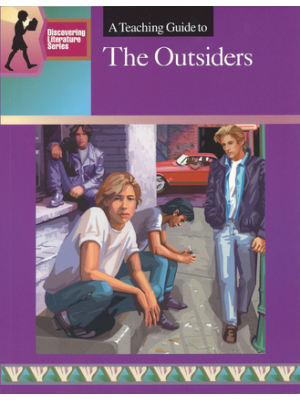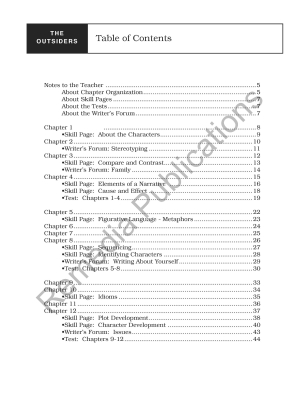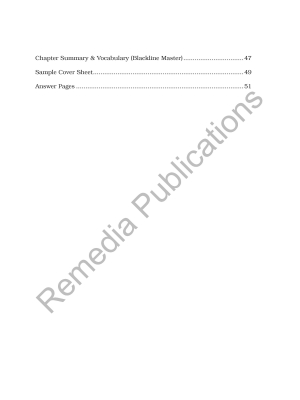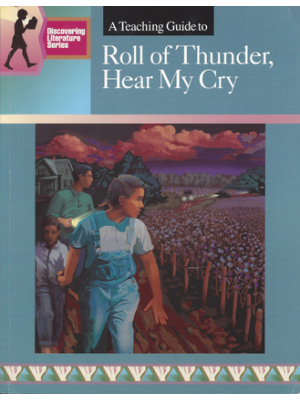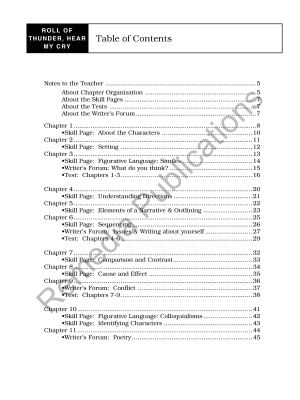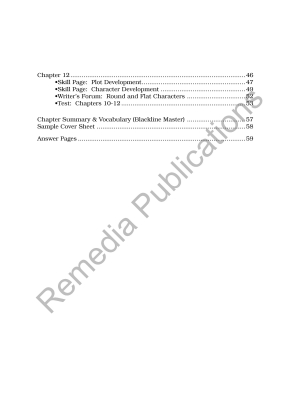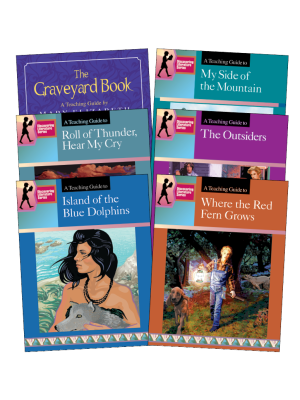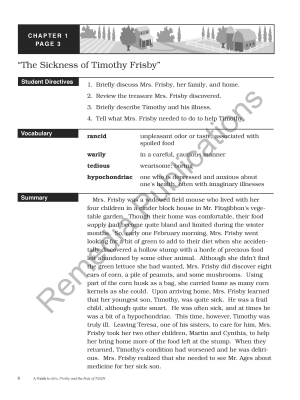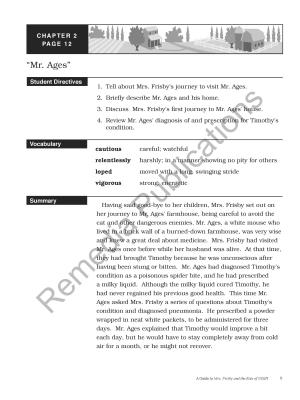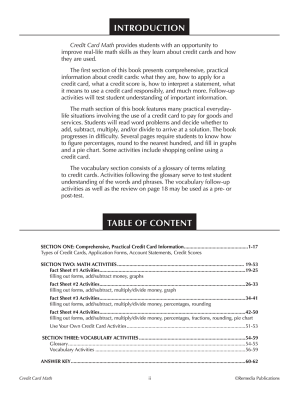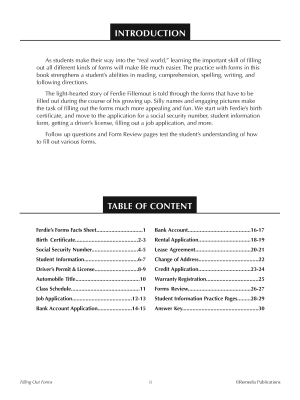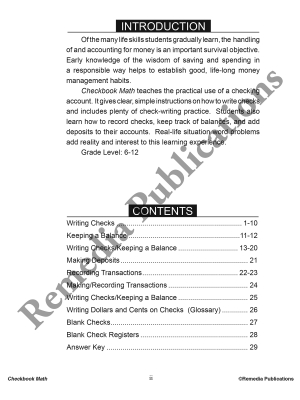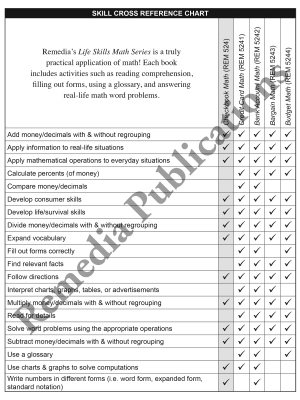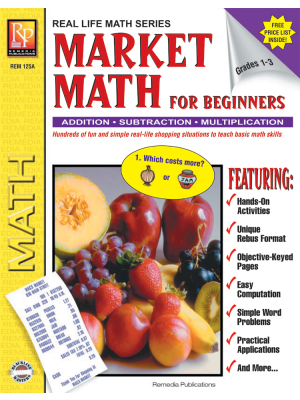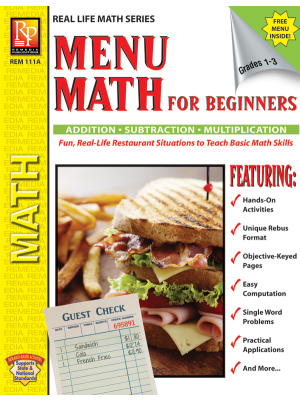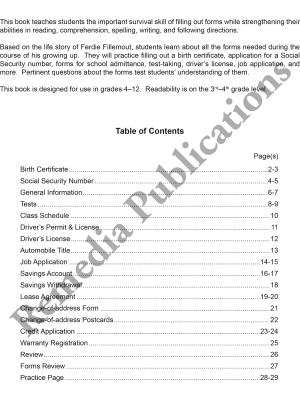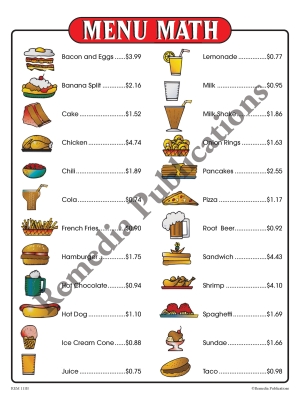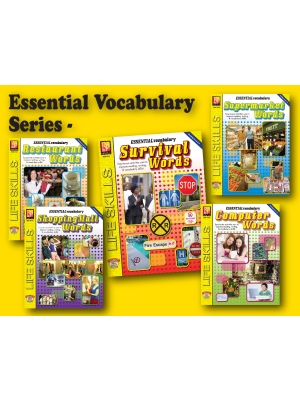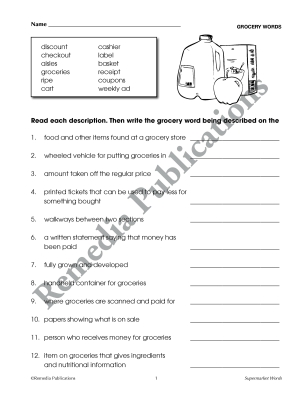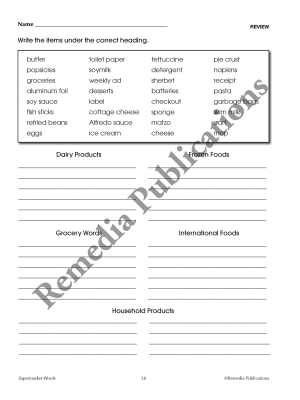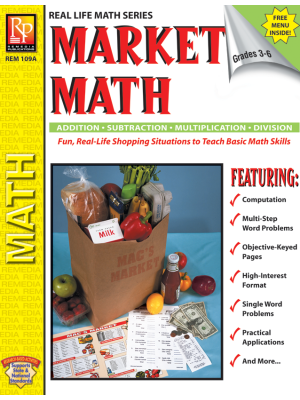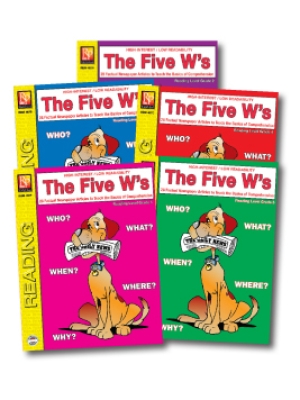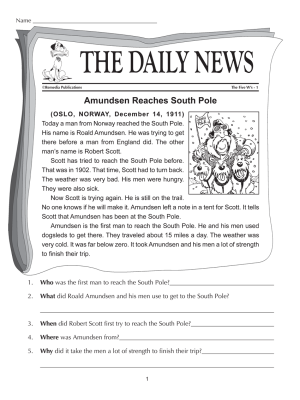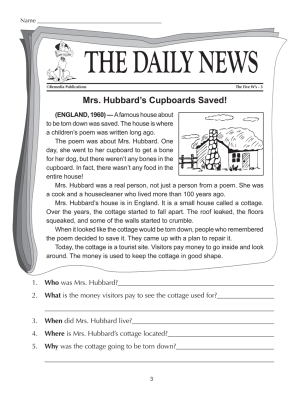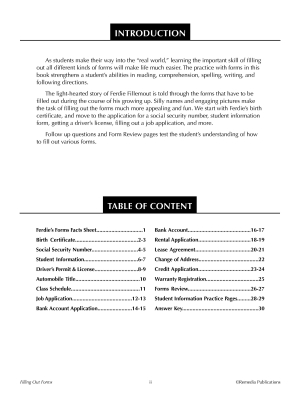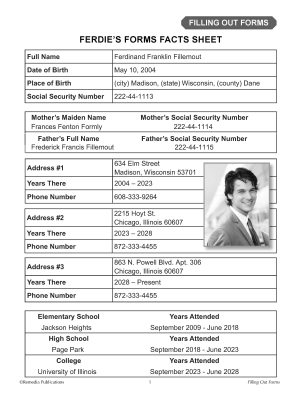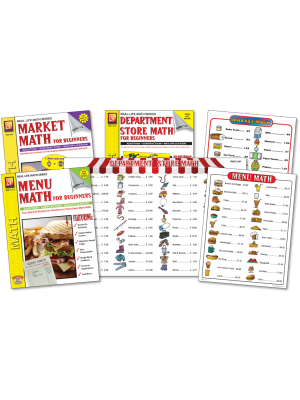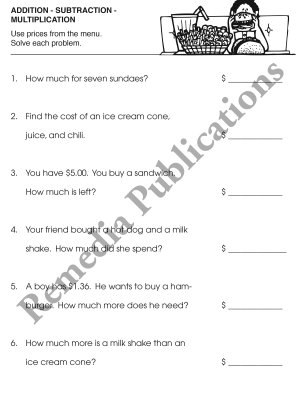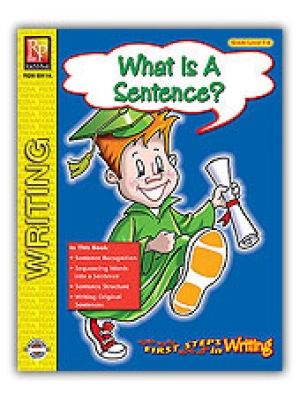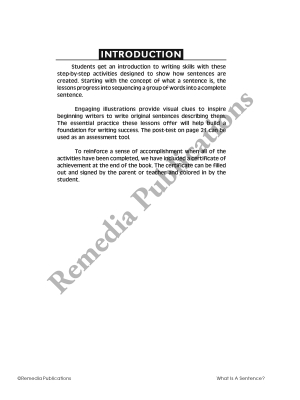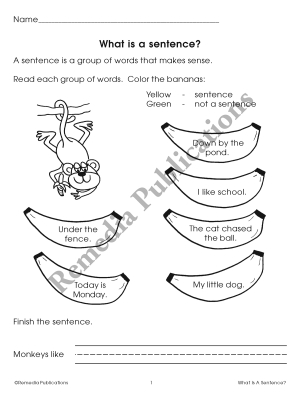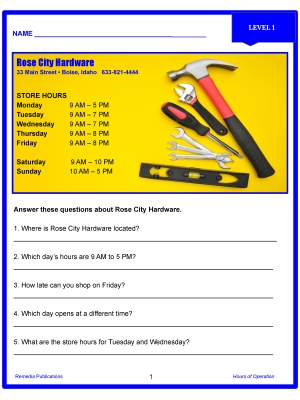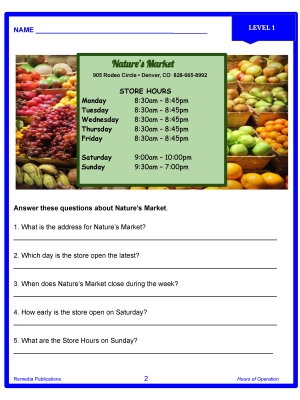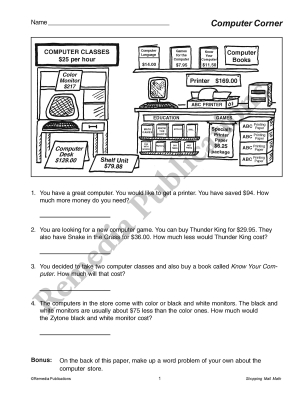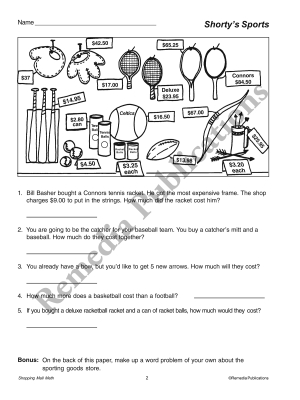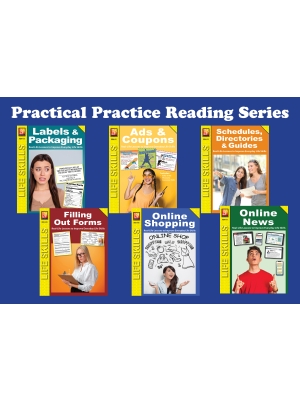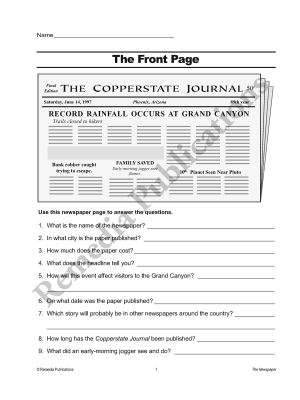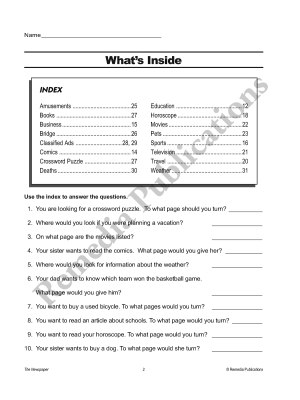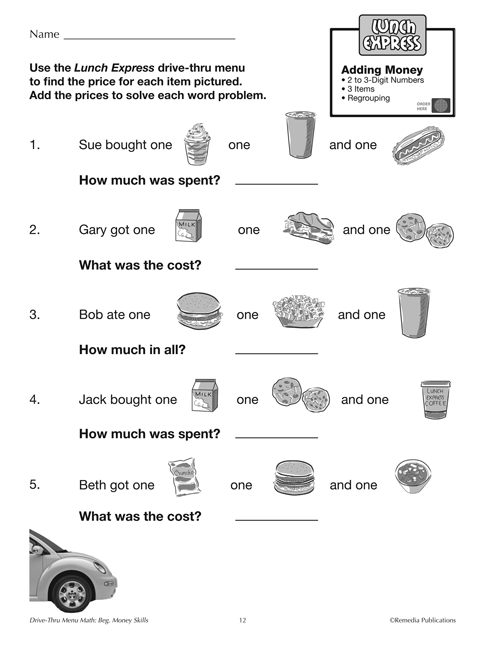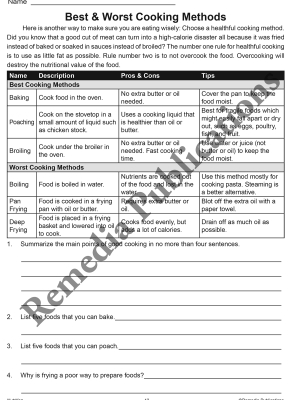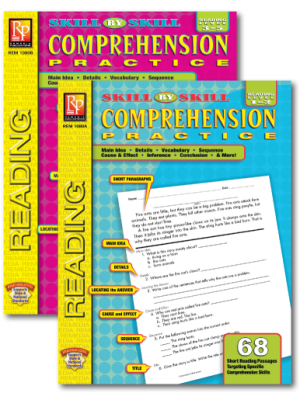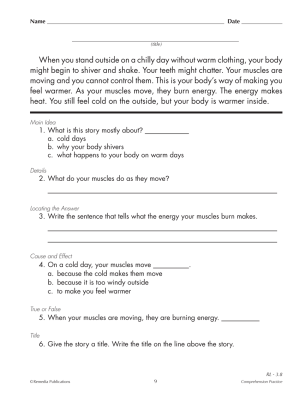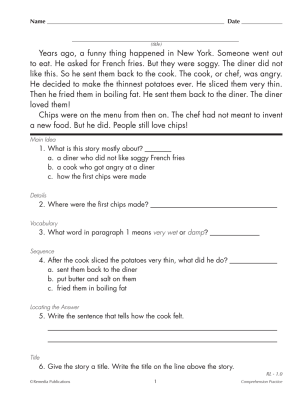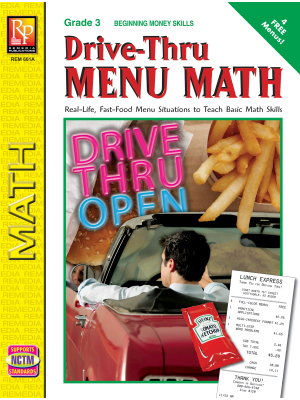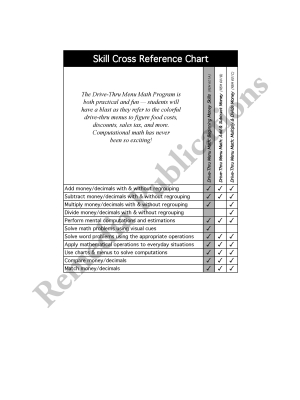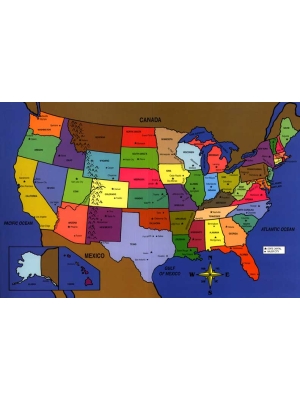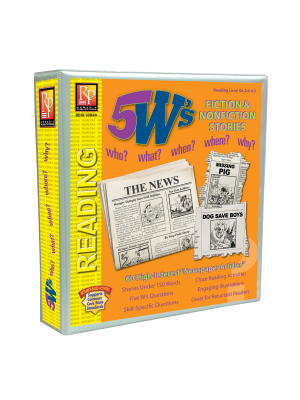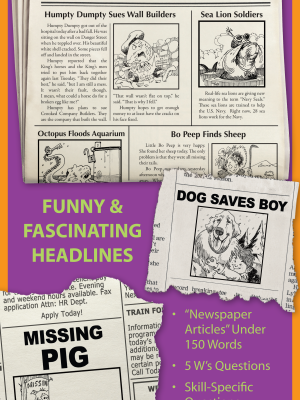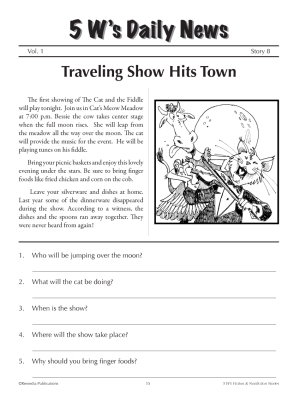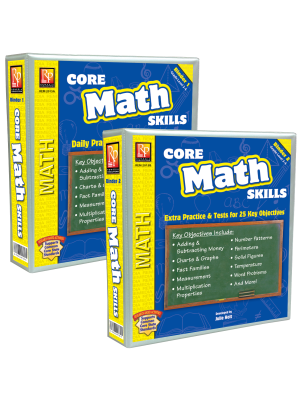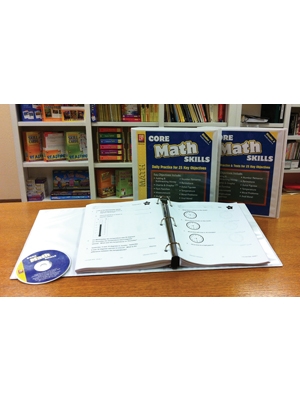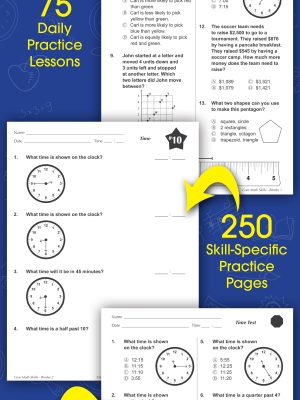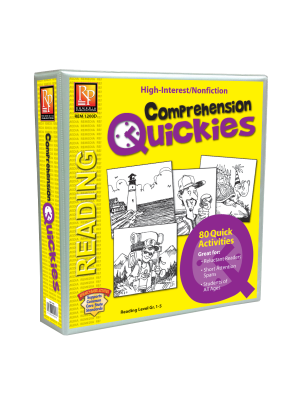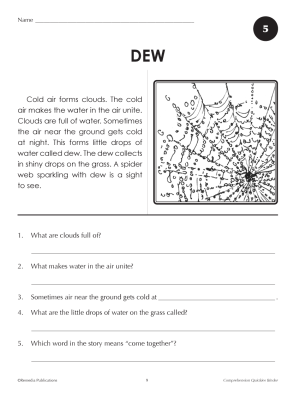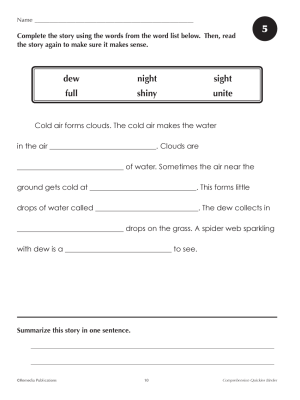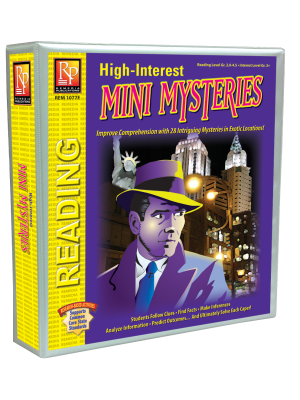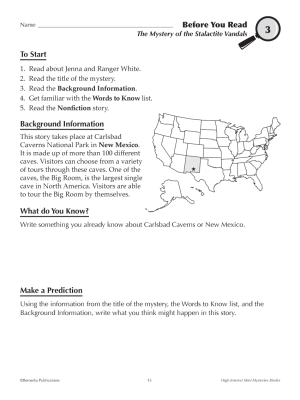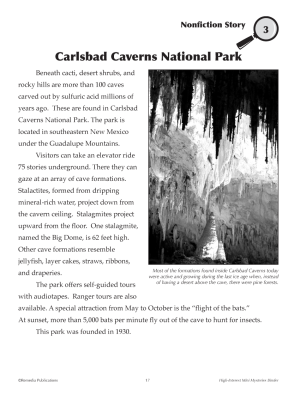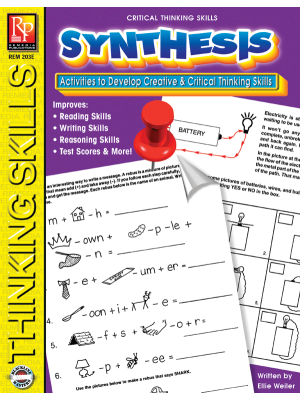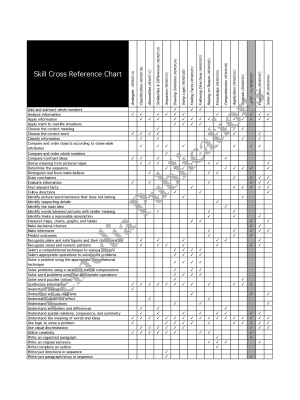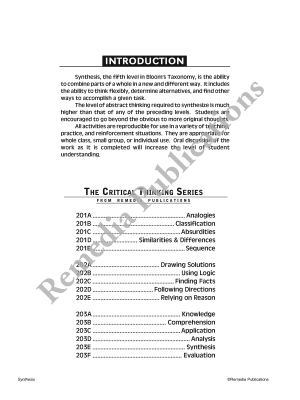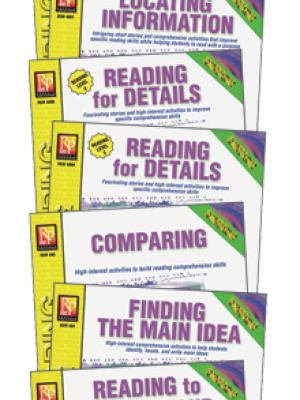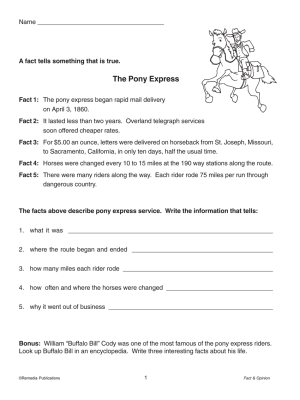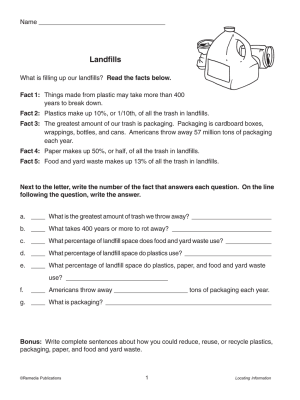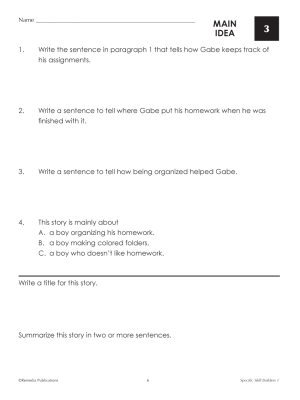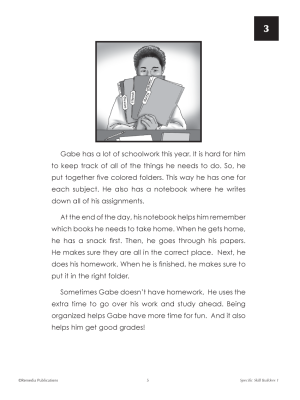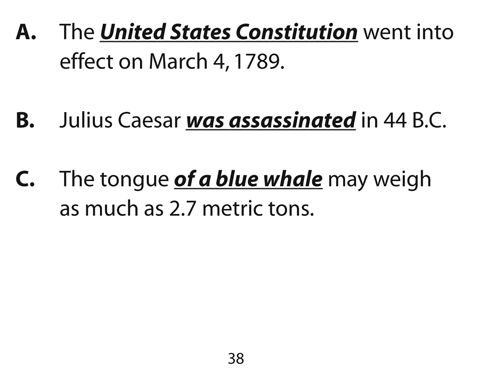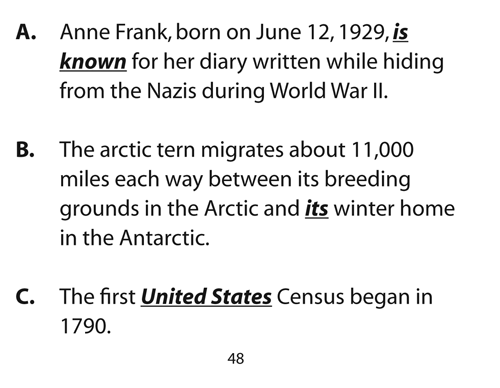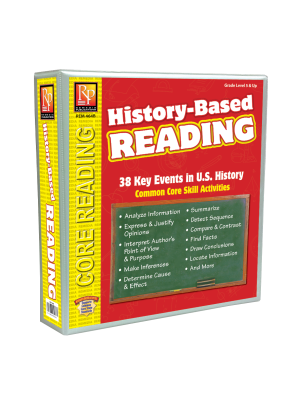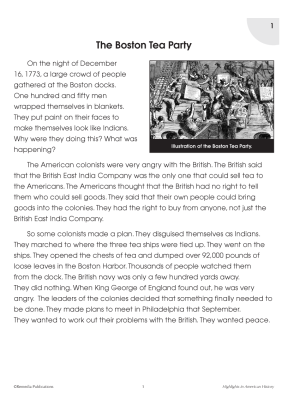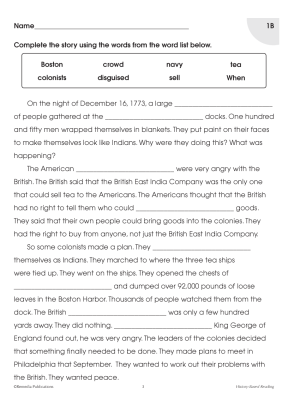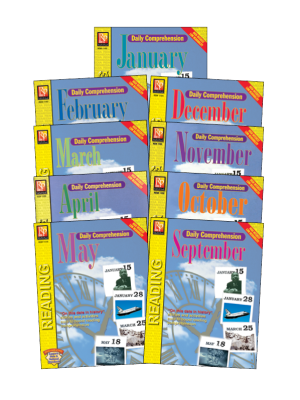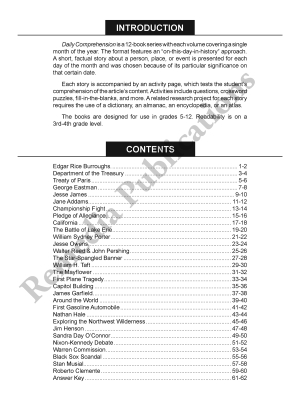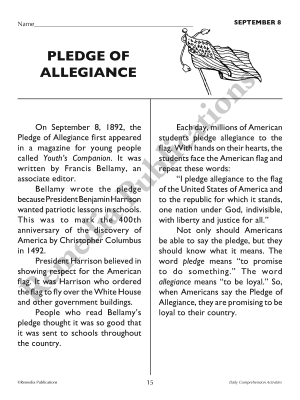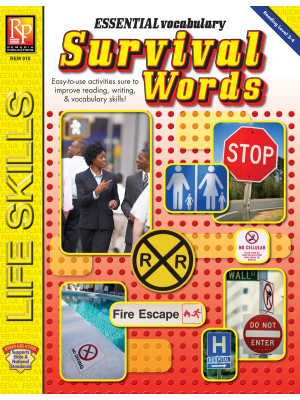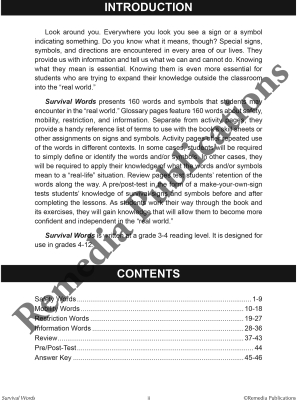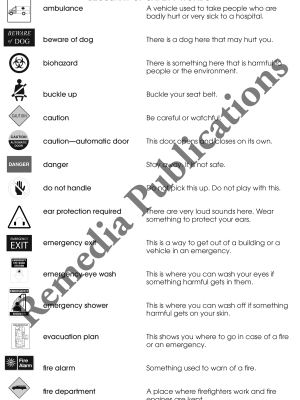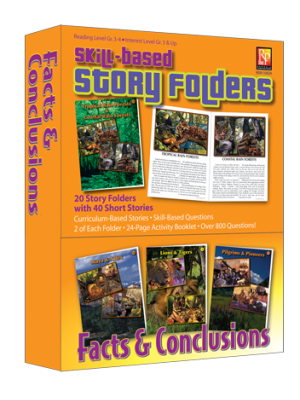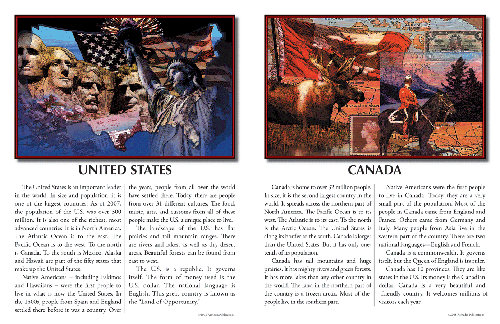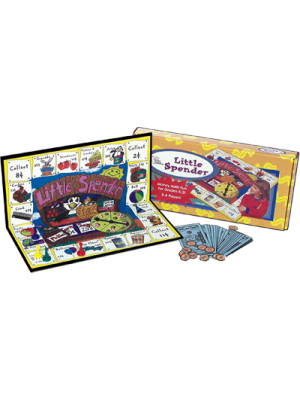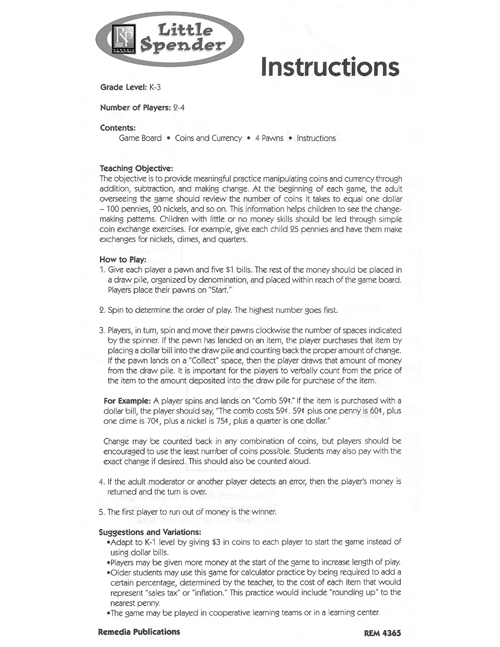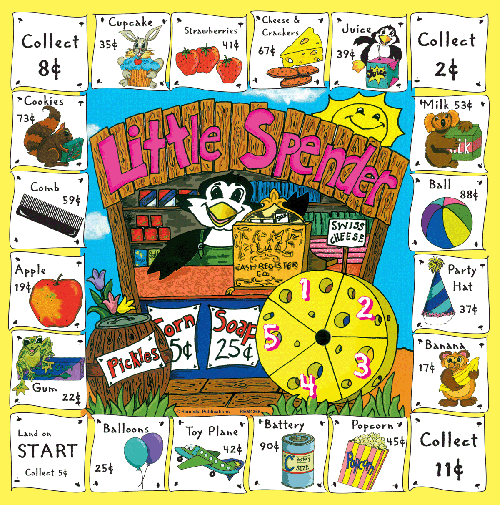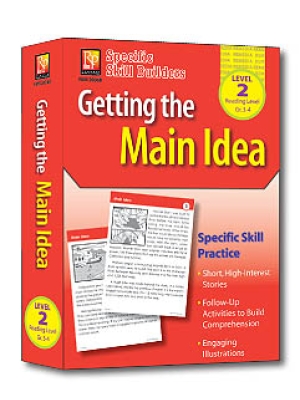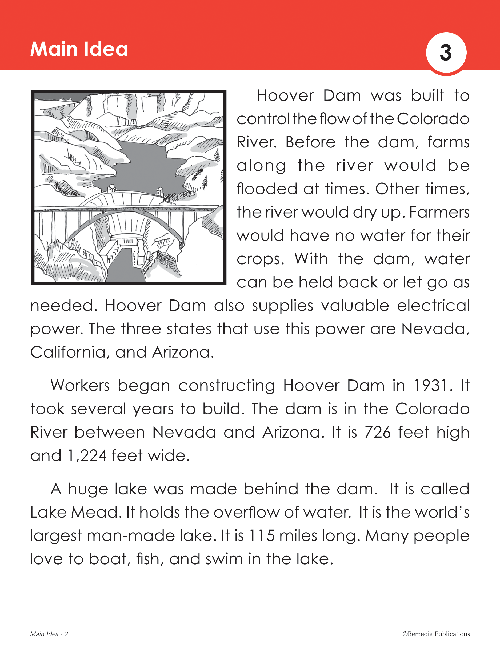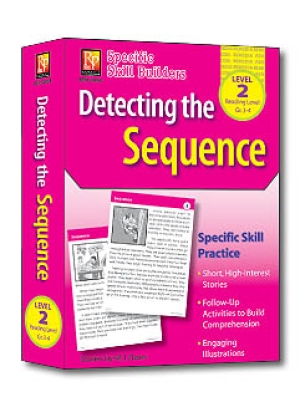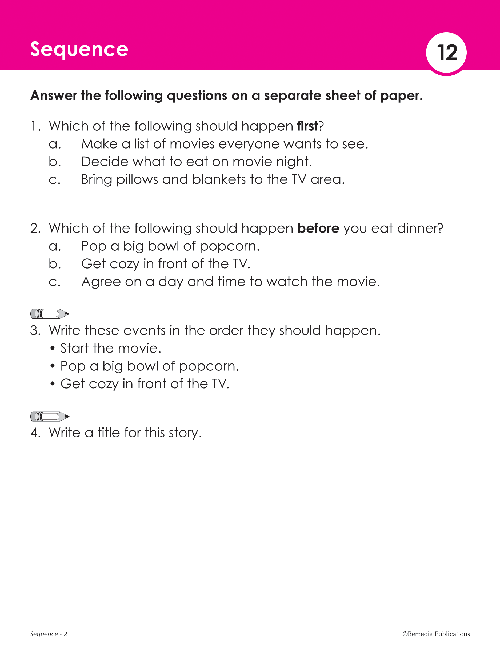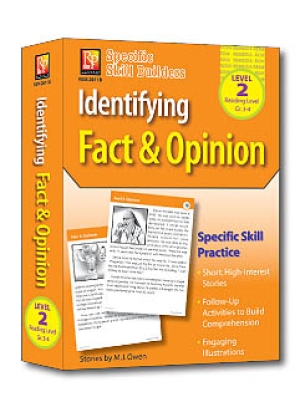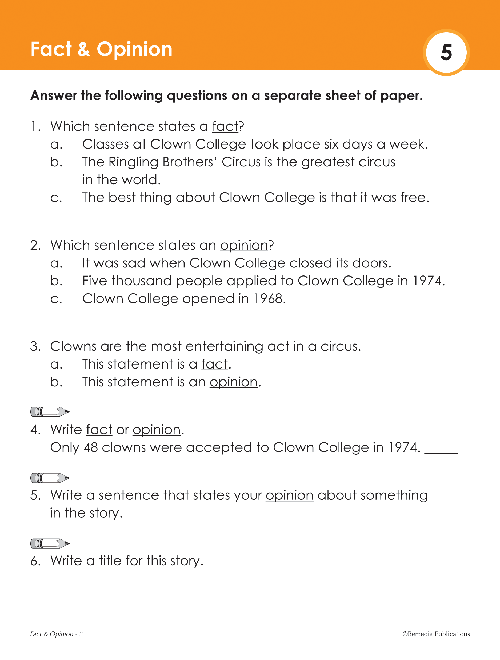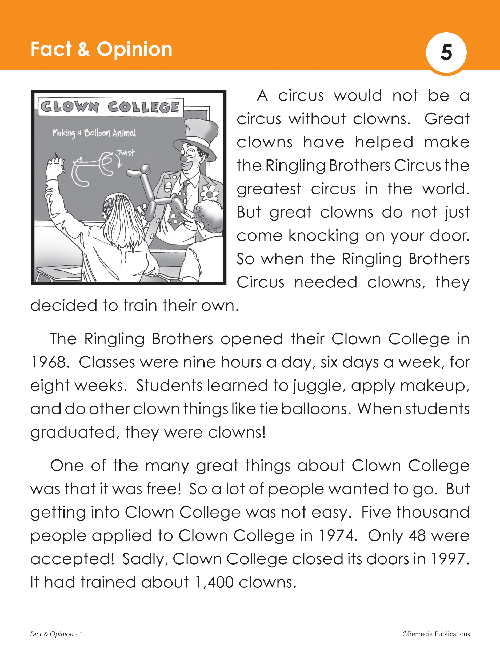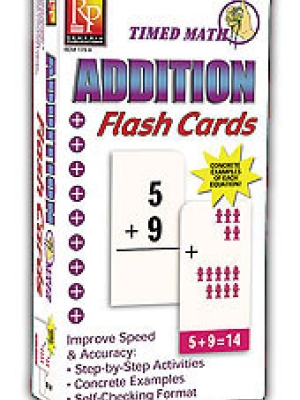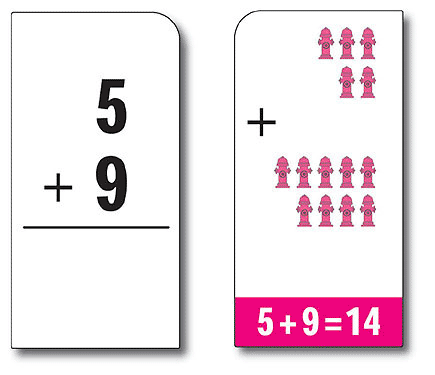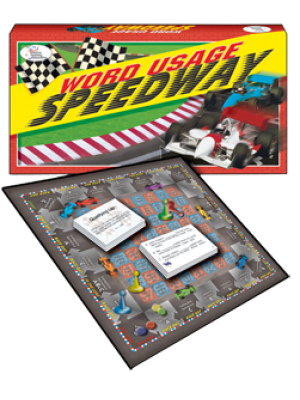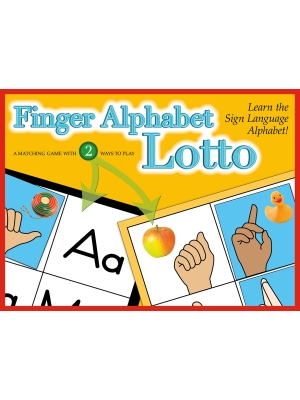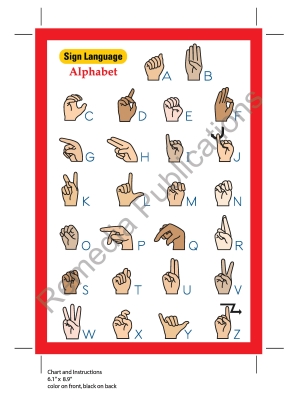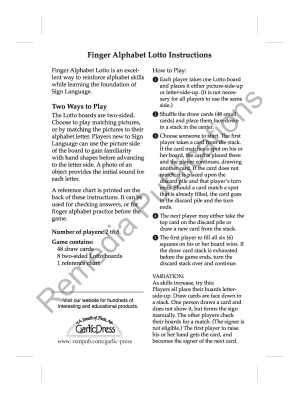Grade Level: 5-8
Interest Level: 4-12
Reading Level: N/A
An in-depth teaching guide for a Newbery Award-winning and popular book. This teacher guide helps students understand Neil Gaiman's The Graveyard Book by grouping by strands: Community Strand and Journey Strand, providing a reference to focus student attention. Each chapter analysis includes Journal and Discussion Topics, Vocabulary, and Chapter Summaries. Other features of the guide include Strategy Pages, Testing, and the Writer's Forum, along with an answer key. 112 pages.
The Discovering Literature Series is designed to develop a student’s appreciation for good literature and to improve reading comprehension. While many skills reinforce a student’s ability to comprehend what he or she reads (sequencing, cause and effect, finding details, using context clues), two skills are vital. They are: discerning main ideas and summarizing the text. Students who can master these two essential skills develop into sophisticated readers.
Each chapter analysis is organized into three basic elements: Student Directives, Chapter Vocabulary, and Chapter Summary.
The Student Directives contain the main ideas in each chapter. They provide the students, working individually or in groups, with a framework for developing their summaries. Student Directives can also be used as group discussions.
The Chapter Vocabulary includes definitions of keywords from each chapter. To save time, students need only to copy, not look up, definitions.
A Chapter Summary for each chapter is included for teacher use and knowledge.
Throughout the guide Skill Pages and Tests are provided for to build an increased understanding of the book and to review student’s knowledge.
Table of Contents
Challenges and Opportunities in Teaching The Graveyard Book
The Elements in this Literature Guide
Introducing the Literature
Neil Gaiman and The Graveyard Book
The Common Core State Standards Initiative
Common Core Correlation
• Strategy 1: Beginning a Book
Chapter 1 How Nobody Came to the Graveyard
• Strategy 2: Understanding the Reading Process
• Strategy 3: Marking a Text
• Strategy 4: Plot—Identifying the Overall Design of a Story
• Strategy 5: Interpreting Characterization
• Strategy 6: Drawing on a Source, Part I “Mowgli’s Brothers”
• Writer’s Forum 1: Analyzing and Composing Lyrics
Special Vocabulary: A Teacher’s Resource
Chapter 2 The New Friend
• Strategy 7: Plot—Types of Conflict
Test: Chapters 1–2
Chapter 3 The Hounds of God
• Strategy 8: Interpreting Character Names and Development
• Strategy 9: Relating Setting and Mood
• Writer’s Forum 2: Writing Description
• Strategy 10: Drawing on a Source, Part II “Kaa’s Hunting”
Chapter 4 The Witch’s Headstone
• Strategy 11: Forming Hypotheses
• Strategy 12: Understanding Tropes and Motifs
Test: Chapters 3–4
Chapter 5 Danse Macabre
• Strategy 13: Reading Dialogue
• Writer’s Forum 3: Writing Dialogue
INTERLUDE The Convocation
• Strategy 14: Analyzing Narration and Point of View
• Strategy 15: Interpreting Allusions and References
Chapter 6 Nobody Owens’ School Days
• Strategy 16: Interpreting Irony
• Strategy 17: Tracing the Hero’s Journey
Test: Chapters 5–6, and Interlude
Chapter 7 Every Man Jack
• Strategy 18: Engaging with a Text Through Imagery and Mapping
• Writer’s Forum 4: Writing a Short Research Report
• Strategy 19: Drawing on a Source, Part III “Tiger! Tiger!”
Chapter 8 Leavings and Partings
• Strategy 20: Rereading a Book
• Writer’s Forum 5: Composing a Book Review
• Writer’s Forum 6: Comparing Two Treatments
Test: Chapters 7–8
Theme Page
• Maturity and Adulthood; Identity; Appearance vs. Reality; Education and
Reading; Civility and Manners
Answer Pages
Chapter, Strategy, Writer’s Forum, and Test Page Answers in Order
Theme Page Answers
Excerpts from The Jungle Book by Rudyard Kipling
“Mowgli’s Brothers”
“Kaa’s Hunting”
“Tiger! Tiger!”
The Graveyard Book: Discovering Literature Series
- Product Code: REM 3091G
- Viewed: 17153
- Availability: In Stock
$17.99
Grade Level: 5-8
Interest Level: 4-12
Reading Level: N/A
An in-depth teaching guide for a Newbery Award-winning and popular book. This teacher guide helps students understand Neil Gaiman's The Graveyard Book by grouping by strands: Community Strand and Journey Strand, providing a reference to focus student attention. Each chapter analysis includes Journal and Discussion Topics, Vocabulary, and Chapter Summaries. Other features of the guide include Strategy Pages, Testing, and the Writer's Forum, along with an answer key. 112 pages.
The Discovering Literature Series is designed to develop a student’s appreciation for good literature and to improve reading comprehension. While many skills reinforce a student’s ability to comprehend what he or she reads (sequencing, cause and effect, finding details, using context clues), two skills are vital. They are: discerning main ideas and summarizing the text. Students who can master these two essential skills develop into sophisticated readers.
Each chapter analysis is organized into three basic elements: Student Directives, Chapter Vocabulary, and Chapter Summary.
The Student Directives contain the main ideas in each chapter. They provide the students, working individually or in groups, with a framework for developing their summaries. Student Directives can also be used as group discussions.
The Chapter Vocabulary includes definitions of keywords from each chapter. To save time, students need only to copy, not look up, definitions.
A Chapter Summary for each chapter is included for teacher use and knowledge.
Throughout the guide Skill Pages and Tests are provided for to build an increased understanding of the book and to review student’s knowledge.
Table of Contents
Challenges and Opportunities in Teaching The Graveyard Book
The Elements in this Literature Guide
Introducing the Literature
Neil Gaiman and The Graveyard Book
The Common Core State Standards Initiative
Common Core Correlation
• Strategy 1: Beginning a Book
Chapter 1 How Nobody Came to the Graveyard
• Strategy 2: Understanding the Reading Process
• Strategy 3: Marking a Text
• Strategy 4: Plot—Identifying the Overall Design of a Story
• Strategy 5: Interpreting Characterization
• Strategy 6: Drawing on a Source, Part I “Mowgli’s Brothers”
• Writer’s Forum 1: Analyzing and Composing Lyrics
Special Vocabulary: A Teacher’s Resource
Chapter 2 The New Friend
• Strategy 7: Plot—Types of Conflict
Test: Chapters 1–2
Chapter 3 The Hounds of God
• Strategy 8: Interpreting Character Names and Development
• Strategy 9: Relating Setting and Mood
• Writer’s Forum 2: Writing Description
• Strategy 10: Drawing on a Source, Part II “Kaa’s Hunting”
Chapter 4 The Witch’s Headstone
• Strategy 11: Forming Hypotheses
• Strategy 12: Understanding Tropes and Motifs
Test: Chapters 3–4
Chapter 5 Danse Macabre
• Strategy 13: Reading Dialogue
• Writer’s Forum 3: Writing Dialogue
INTERLUDE The Convocation
• Strategy 14: Analyzing Narration and Point of View
• Strategy 15: Interpreting Allusions and References
Chapter 6 Nobody Owens’ School Days
• Strategy 16: Interpreting Irony
• Strategy 17: Tracing the Hero’s Journey
Test: Chapters 5–6, and Interlude
Chapter 7 Every Man Jack
• Strategy 18: Engaging with a Text Through Imagery and Mapping
• Writer’s Forum 4: Writing a Short Research Report
• Strategy 19: Drawing on a Source, Part III “Tiger! Tiger!”
Chapter 8 Leavings and Partings
• Strategy 20: Rereading a Book
• Writer’s Forum 5: Composing a Book Review
• Writer’s Forum 6: Comparing Two Treatments
Test: Chapters 7–8
Theme Page
• Maturity and Adulthood; Identity; Appearance vs. Reality; Education and
Reading; Civility and Manners
Answer Pages
Chapter, Strategy, Writer’s Forum, and Test Page Answers in Order
Theme Page Answers
Excerpts from The Jungle Book by Rudyard Kipling
“Mowgli’s Brothers”
“Kaa’s Hunting”
“Tiger! Tiger!”

